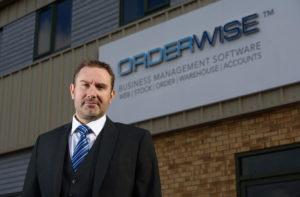As IR35 rolls out to the UK private sector in 2020, what can you do to prepare?

As a business owner that both employs contractors and also supports other companies with recruiting and managing an agile workforce, I am aware the IR35 roll out to the private sector next year is a cause for concern to many. It can be difficult to determine which side your workers fall on, and the tool available from HMRC that is supposed to help do this, has not garnered the best reputation for accuracy.
Most notably, HMRC’s CEST (Check Employment Status for Tax) tool determined ITV presenter, Lorraine Kelly, to be liable for income tax and national insurance, but she won the tax tribunal court case. So if national broadcasters can get in hot water over IR35, what does that mean for your business? Here’s my advice on how you can prepare.
What is IR35?
Launched in 1999, the IR35 legislation is in place to prevent companies using workers in a way that allows them to avoid them being an employee, as this reduces income tax and national insurance contributions.
The onus used to fall on the worker to ensure they were compliant, but this all changed in 2016 and responsibility now lies with the end client. If you are a business owner that uses freelancers or contractors, this means you.
The public sector were the Guinea pigs of the scheme, with IR35 changes rolled out across the sector in 2017. But from April 2020, private companies will also be responsible for clarifying IR35 status. So now is the time to start the conversation within your organisation. You can use the HMRC’s CEST tool as a good starting point to determine a worker’s status, but as mentioned it may be best to not solely rely on this and seek advice from a professional on the legislation.
Are there any exceptions?
Small businesses will not be affected and won’t need to determine the status of off-payroll workers they hire. HMRC is using the Companies Act to determine a “small business,” which is:
- No more than 50 employees
- No more than £10.2 million annual turnover
- No more than £5.1 million balance sheet total
IR35 awareness is on the increase and many organisations are using it as a chance to review their entire workforce and contracts they have in place, to reduce the legal risks and potential costs.
How does my business prepare?
Take a look at your current workforce. This includes anyone working through intermediaries and agencies, then identify anyone who is supplying work through a personal services company (PSC).
For any contracts with these workers that go past April 2020, you need to decide if the new rules apply to them. Open up the conversation with your contractors and discuss whether the rules apply to their roles.
Once you’ve done this, update your systems and processes so any future contracts can be easily determined. This should cover how payments are made to freelance workers within IR35 rules.
One of the most straight forward questions to ask is yourself is, ‘can a contractor easily substitute another worker to complete the work they are doing for us?’ If the answer is no, then it’s likely they are not IR35 compliant.
Make sure you set clear project objectives for your workers and ensure they are easy replaced by someone with similar skills. Otherwise they will be viewed as an employee and could bring you hefty fines.
If you currently work with contractors and freelancers, do you think you’ll need to make changes to become IR35 compliant?
By Josh Hanning, Founder of www.yourbau.com
After working within the IT and Technology sectors for over a decade, Josh founded freelance marketplace yourBAU.com. He now consults with businesses about how modern workforces are evolving and why selecting the right technologies and strategic partnerships is critical to success.








